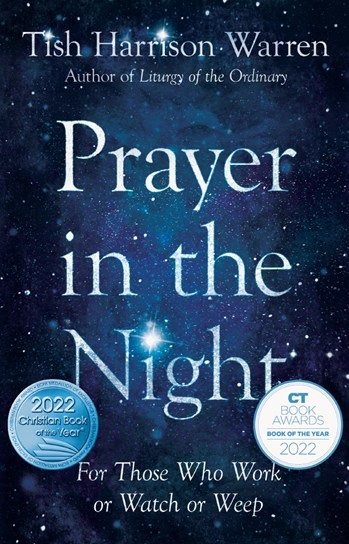Tish Harrison Warren, in her wonderful book Prayer in the Night, notes a Compline prayer that begins “shield the joyous.”
If you asked me what that phrase meant, I’d immediately say, “Oh, it’s a prayer to guard joyous people or something like that” and move on.
But she gets to a very different point, a waaaaay better one – especially for those of us who battle with all the things we do.
“In this prayer we recognize the vulnerability of joy.
We ask God to shield the joyous, to protect the part of us that’s courageous enough to believe that good things happen.
…. We have to learn to trust God in order to receive even good things from him.
And learning to receive good things from God is difficult, especially if you’ve been hurt. It’s hard to learn to trust goodness and beauty.
It takes practice to face the reality of darkness, but also to ask for — and hope for — light.
To risk joy requires hope. And hope is the opposite of anxiety. I am habitually anxious. I catastrophize. I plan for the worst. This habit leads me to, as they say in the South, ‘borrow trouble’.
Horrors could happen, so I start mourning them ahead of time — it’s never too early to get a jump start on misery.”
Now… read this next bit, where she contrasts the well-worn phrase “borrow trouble” with something more difficult.
Warren:
“To hope is to ‘borrow grace’. It is not naive optimism. Hope admits the truth of our vulnerability. It does not trust God to keep all bad things from happening. But it assumes that redemption, beauty, and goodness will be there for us, whatever lies ahead.
… I have to learn again and again to risk joy, to intentionally practice hope.”
Amen.
And… that’s hard thing to do – and may be quite impossible if you have major depression or anxiety etc, hence my links at the bottom (I wrote about the “All is vanity” depression here, and it gets to the heart of a depressive symptom called anhedonia, which has a medical basis, is a medical condition).
So I get why it might be impossible to “practice joy”, because very often I can’t, either, and it’s often a medical thing.
But we can look for treatment and while we pursue that avenue, we can still try to “risk joy.” Try to try to hope.
It’s extremely hard for me to “risk joy” when things are dark and hopeless. Frankly, I usually don’t.
And it’s why my pessimism instinctively relates so much to that line from the old Pet Shop Boys B-side “Miserablism”: “Deny that happiness is open as an option/And disappointment disappears overnight.”
In a way, that attitude feels an emotionally safer way to live, because it’s more believable, because so much of life on earth is life on earth.
But the New Testament is full of “our hope in Christ,” and we do know the way all this ends.
And the more we set our minds on the reality of heaven, as Paul urges us to do in Colossians, the more energized we’ll become at doing our work on earth (provided, of course, we’re being treated for a medical condition we might have that allows us emotional energy).
And the more we work on earth with heaven in mind, the more heaven will touch the earth, and we might just be surprised that the Lord fills us with joy when we thought it was impossible.
I’m going to try to risk joy this week (and of course, already my mind is telling me, “how dare you?”). Feel free to try with me.
If you’re anxious, depressed, or struggle with any aspect of mental health…
For readers from the United States….
Find a psychiatrist here.
Find a therapist here.
For readers, internationally, seek help from a local resource.
For salvation, Christ and Christ alone.

